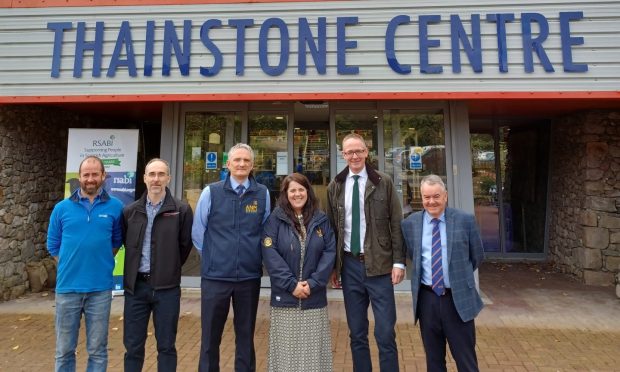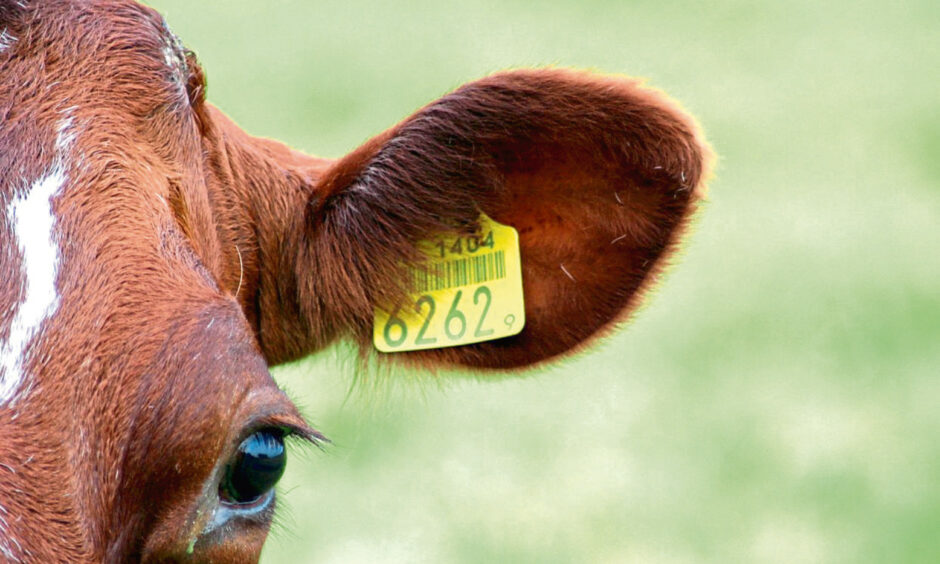High frequency EID electronic tagging was in focus at Thainstone Centre recently when Under Secretary of State for Scotland John Lamont MP visited the north-east mart.
The new president of the Institute of Auctioneers and Appraisers (IAAS) Alan Hutcheon, met with Mr Lamont to demonstrate how the new technology could revolutionise the livestock industry.
With Scottish Government due to announce a date for the compulsory use of ultra-high frequency (UHF) tags, Aberdeen and Northern Marts (ANM) has been the forerunner of trials in a live mart situation.
Mr Hutcheon said: “High frequency electronic tagging is essential for the future of our industry. Having a single source digital database of all cattle movements will improve the efficiency and traceability across the supply chain, reduce the administrative burden that surrounds it and enhance animal welfare and staff safety. It also has the potential to help reduce red tape around exports and manage disease outbreaks.”
IAAS executive director Neil Wilson and the board have also met with and written to various politicians to advocate the practice.
“It’s so impressive and it’s only when you see it in action that you appreciate the savings in time and management, and importantly also for the health and safety for those working in the marts,” added Mr Hutcheon.
“The reader can quickly record numerous animals at a safe distance. It’s quick, it reduces the cross checking and paperwork, and it instantly creates easy traceability throughout the supply chain.”
ANM has been working closely with ScotEID, which is developing the technology, to trial UHF electronic tagging in a commercial situation in conjunction with farms and abattoirs.
The technology has been through rigorous testing and continuously iterated over the last 10 years to ensure it is user-friendly, practical and accurate in both farm and mart conditions.
While low frequency tags are widely uses, there is still some resistance from farmers and marts to invest in the UHF technology until there is commitment from Scottish Government.
“Paper passports are costing tens of thousands of pounds to produce every year,” said Mr Hutcheon.
“If we could redeploy these government funds to support farmers and marts in the uptake of ScotEID, it would significantly support the industry to modernise and be more efficient, traceable, and less costly for all.”
The visit follows other recent engagement with the Scottish Conservative and Unionist Party’s Rachel Hamilton MSP and Finlay Carson MSP.
Other visitors to experience the operation have been Government officials and farming stakeholders from across the UK.

